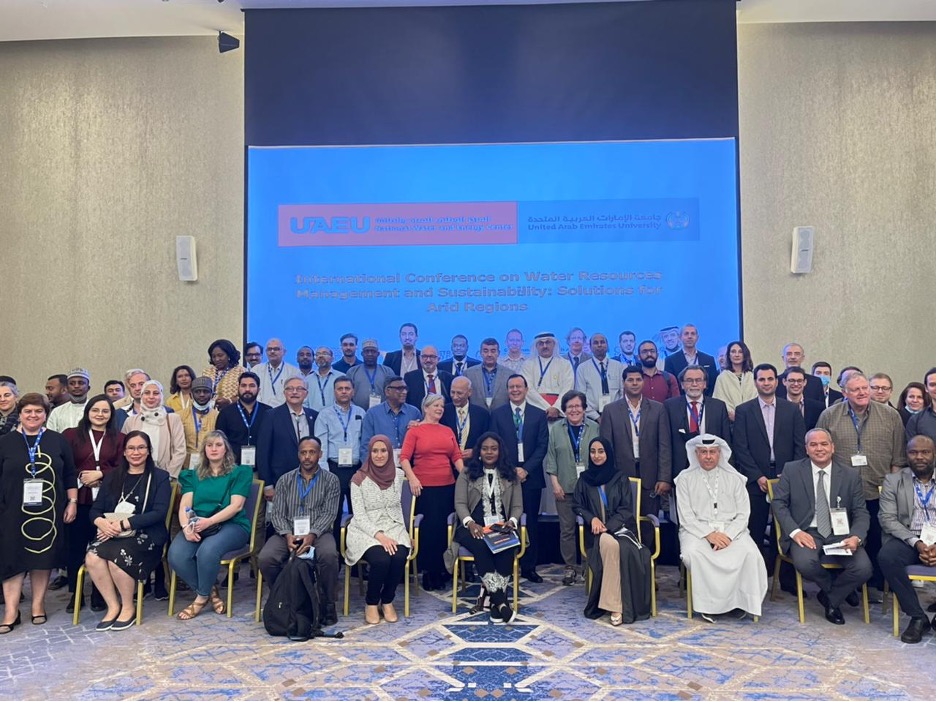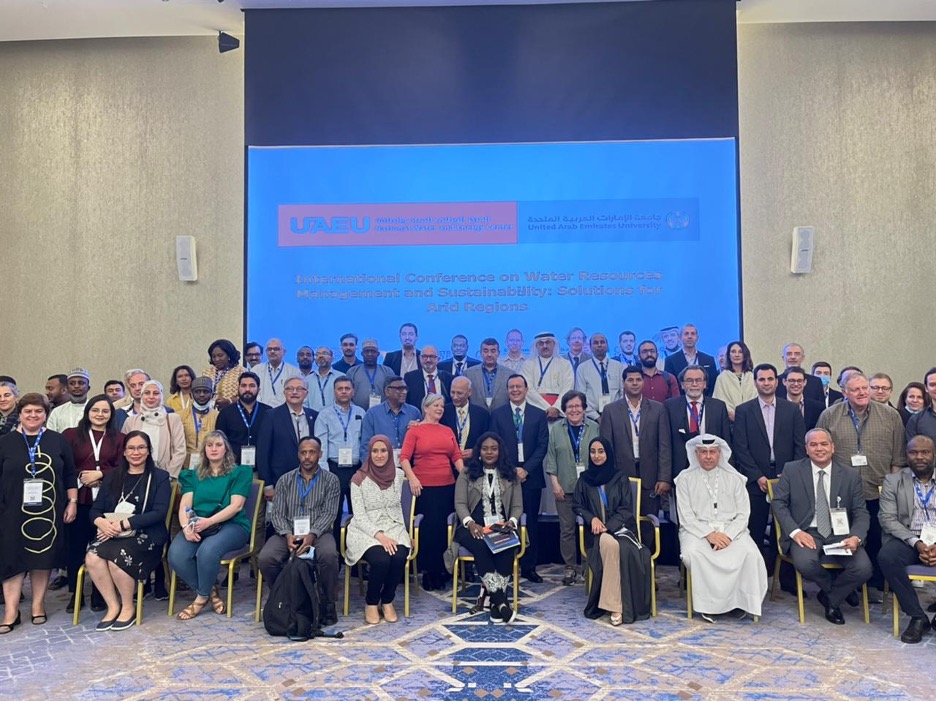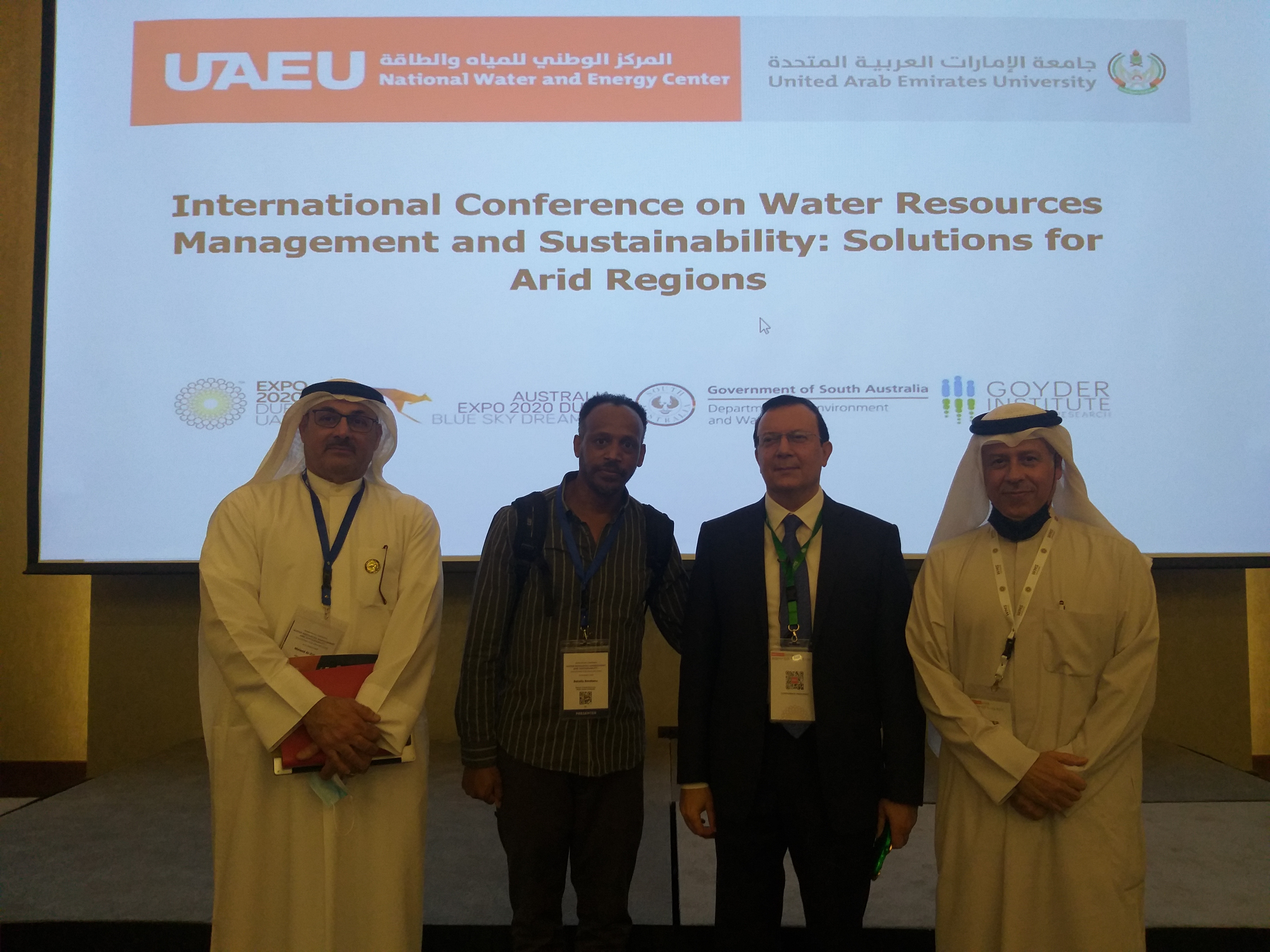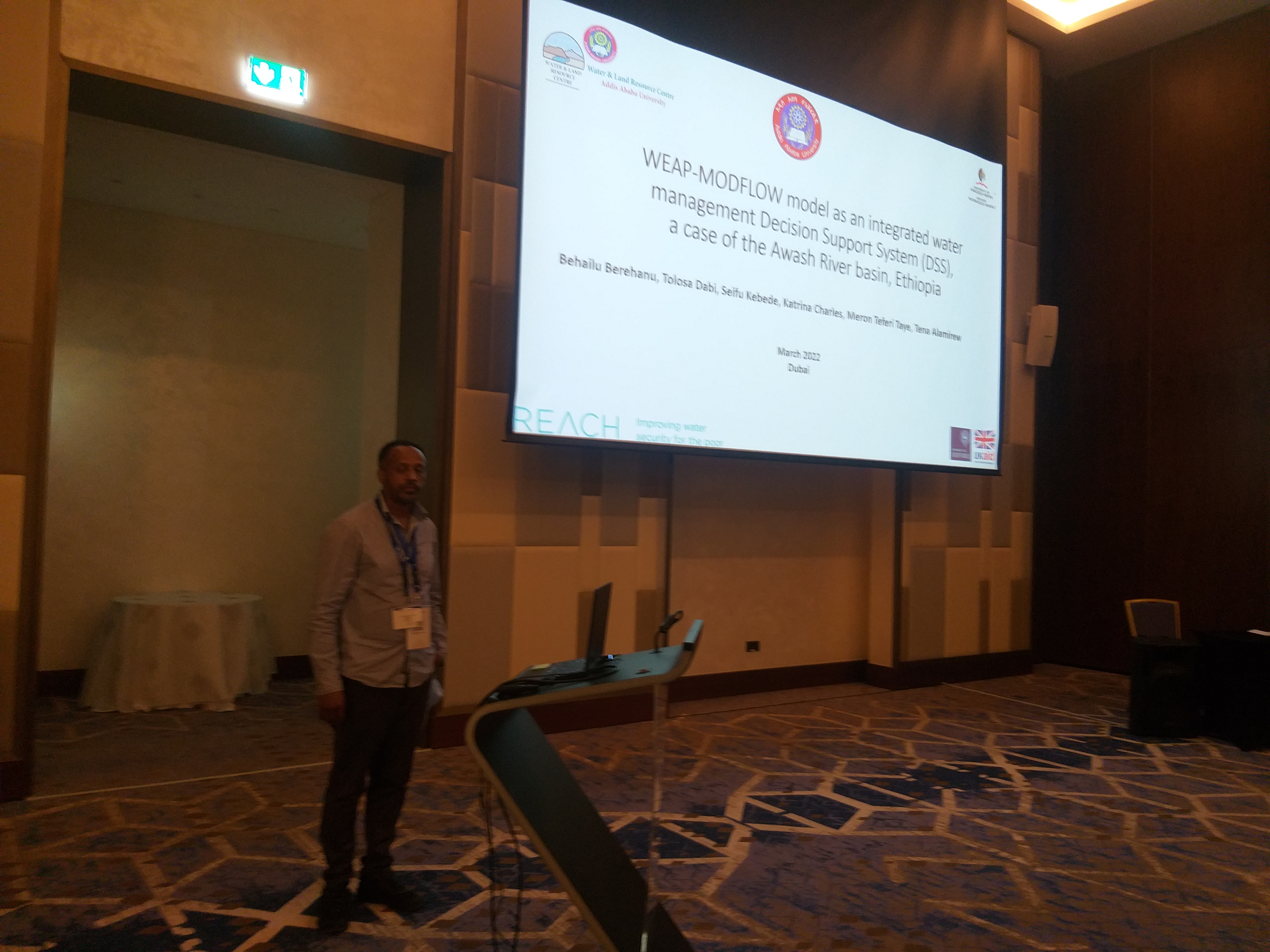Dr. Behailu Birhanu, Addis Ababa University, School of Earth Sciences
Congratulations to Dr Behailu Birhanu, postdoctoral researcher in groundwater management from the REACH team at Addis Ababa University, who was awarded the best oral presentation at the International Conference on Water Resources Management and Sustainability: Solutions for Arid Regions earlier this year. In this piece Dr Behailu reflects on key takeaways from the conference, held in person in Dubai.
With increasing populations, water quality challenges, climate change and variability, the sustainable management of our water resources has become more complex. Hence, one simplistic solution cannot resolve the difficulties we are facing. This was a common theme across the presentations at the International Conference on Water Resources Management and Sustainability: Solutions for Arid Regions, held in Dubai in March, from the academicians, practitioners, and dignitaries from 55 countries who participated in the conference.

Integrated modelling tools for groundwater management
I presented applications of surface and groundwater integrated modeling tools (WEAP-MODFLOW), through case studies of my work with REACH in the Awash River Basin, Ethiopia. These models can be used as a basis for water management decision support system, in both the upper and middle Awash River basins. Presenting recent research outputs, I demonstrated how conjunctive use of surface and groundwater not only reduces unmet water demand, but also lifts the pressure off stressed groundwater resources. Finally, I showed how groundwater can contribute to agricultural productivity in Ethiopia and other African countries in arid regions, with appropriate monitoring schemes and properly integrated surface water irrigation abstraction.
Community engagement in Advanced Water Resources Management Technologies
Across the conference, presentations demonstrated technological advancements as future sustainable water management solutions for arid regions and beyond. These included dedicated satellites to monitor surface water quality, applications of artificial intelligence and machine learning to better understand and control our water resources, technologies of managed aquifer recharge to enhance sustainability and resilience, and applications of high-resolution remote sensing data in data-scarce/inaccessible.
A central theme, interestingly enough, to all presentations and keynote speeches delivered by the dignitaries such as Ambassador Jamie Isbister (-Australia’s Ambassador for Environment) and His Excellency Dr. Zaki Anwar, (Chancellor of the University of United Arab Emirates), was the importance of engaging the community in water management efforts. The highlight of the conference was how important it is to engage the community in addition to the ever-increasing advanced technologies and engineering solutions designed to tackle water-related problems. The scientific community seems to have reached a consensus that no matter how sophisticated and advanced the technologies and engineering solutions have become, they are not enough. Further, the principles and wisdom of the indigenous community should be fairly placed in the water resource management strategies. As our water-related problems are getting complex, integrating the principles of the indigenous community and bringing the wider community into the water management dialogue is more important than ever.



